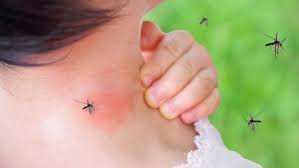Dengue fever is not a new occurrence in most South-East Asia countries. It is estimated that more than 100 million infections affect people annually. It is considered an infection as it is caused by a virus known as dengue virus (DENV). This virus is carried by mosquitoes, commonly the Aedes species. A person is said to be infected by the DENV virus after being bitten by the female mosquitoes carrying the virus. The virus then enters the body and circulates through the blood circulation system. The DENV is transmitted to another person through bite if the infected mosquitoes’ bites another human and releases the dengue virus into the other person’s body. Dengue fever can be manifested either with no obvious symptoms to a severe one.
Generally, when a person is infected with a virus, a person is said to be immune to the virus in the future. This is because the body produces antibodies that have memory of the previous infections and are able to fight the same infection in the future. In short, a person is unlikely to experience the same virus infections once they have been infected and heal from it.
However, this may not be the case for dengue fever. A person can be infected with dengue for the second or more time. Dengue virus is divided into 4 serotypes, DENV-1, DENV-2, DENV-3 and DENV-4. A person typically gets infected with only one of the serotypes. When he or she recovers, the body produces antibodies against that one specific serotype. Hence, if a person is infected with other serotypes in the future, the existing antibody is unable to fight off the infection due to the differences of the existing antibody and the subsequent serotypes.
The scary part of the infection caused by other subsequent serotypes lies in the potential danger it can cause. Reinfection with other serotypes pose great dangers as it can lead to severe dengue. For example, a person infected with serotype DENV-1 in the past and currently exposed to serotypes DENV-2 or DENV-3, is likely to experience severe dengue due to cross-reaction immune reaction. The most terrifying reaction can happen when the DENV-2 serotypes affect a person due to the likelihood of developing a severe form of dengue such as Dengue Haemorrhagic Fever (DHF) and Dengue Shock Syndrome (DSS).
Dengue fever initially starts with high grade fever for 2 to 7 days. Common symptoms are severe headaches, muscle pain (myalgia), joint pain (arthralgia), skin rash and pain behind the eyes (retro-orbital headaches). If a person experiences these symptoms and with a fever, it should raise suspicion that a person may be infected by dengue virus. This is especially true if a person is living in a neighbourhood that has reported cases of dengue.
It is necessary to spot warning signs when a person is infected by dengue virus. Warning signs should indicate that a person needs to get to a healthcare facility or emergency room immediately. If left untreated, a person may experience life-threatening episodes and even death. Warning signs include vomiting more than 3 times in 24 hours, spontaneous bleeding nose or gums, vomiting blood and presence of blood in the stool. Severe dengue needs to be taken care of as soon as possible to avoid the critical phase. Critical phase occurs in the 3rd to 7th days after exhibiting dengue symptoms and lasts for 24 to 48 hours. It is likely a person with dengue fever will be admitted to hospital for a few days or at least the first 24 hours for observation. It is best to get medical advice whenever a person is experiencing symptoms relating to dengue so that they can be diagnosed early and be provided with the right support or treatment.



